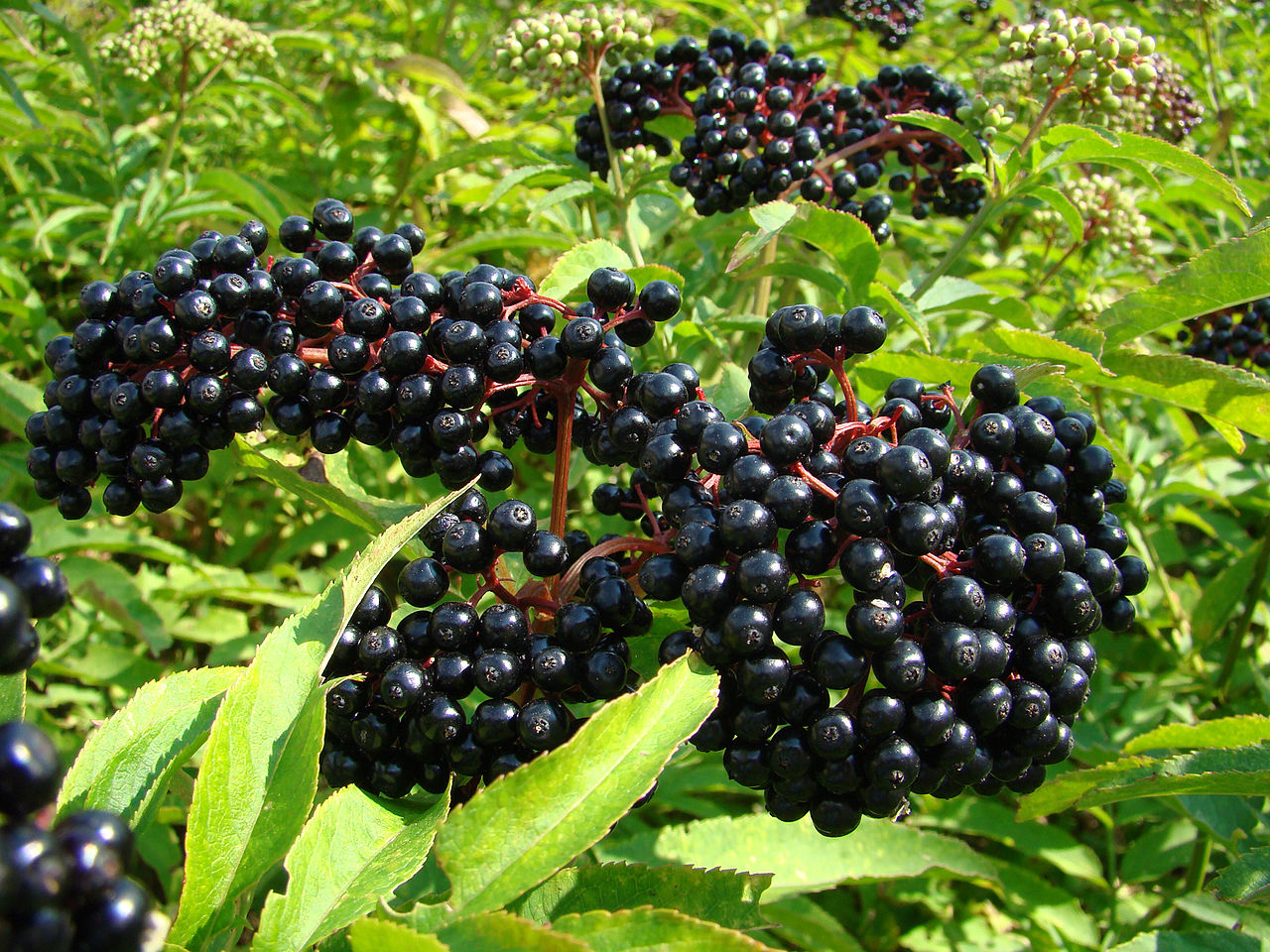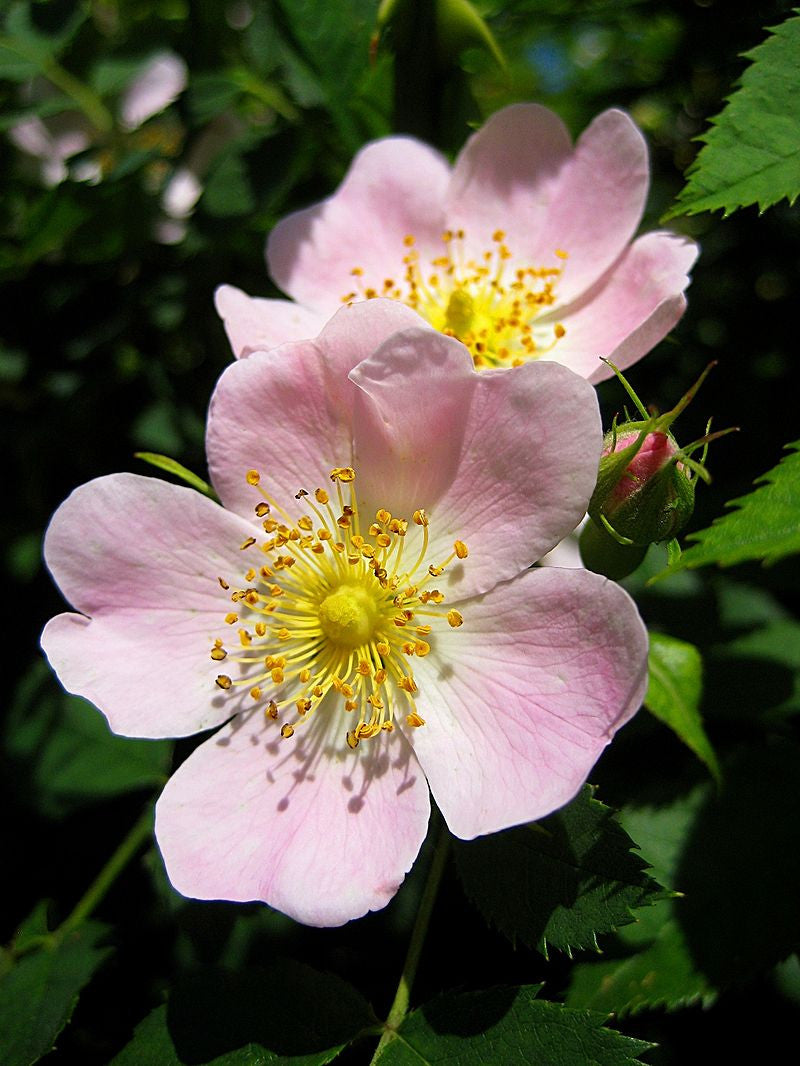
Wild Edible Of The Week - Week 17 - "Elderflower"
Botanical name : Sambucus nigra
Common names : Elder, Elder Flower, Black Elder, European Elder, European Black Elderberry

Physical appearance : A fast growing, deciduous shrub or small tree growing up to a maximum of 10 metres in height but more commonly, grows up to 3-4 metres in height. The Elder has grey, cork like bark which gets darker as the plant matures. Its leaves usually grow in groups of five and are large, dark green and slightly toothed. The Elder has creamy white flowers which grow in numerous umbels. The Elder produces small reddish, black berries.
Edible parts : The flowers can be eaten raw, straight off the bush. The ripe, dark berries are also edible (unripe fruit will be mildly poisonous!). Elder flower buds can also be eaten.

Best places to find : Frequently found on scrub land, woodland, waste land and in hedges.
Time of year : The fruits tend to ripen between August and October. The buds and flowers appear earlier.

Serving suggestions : Young buds can be added to salads or be made into pickles. The flowers (removed from the stalks) can be used to make fritters, Elder flower cordial or can be eaten in their raw state. The ripe berries can be used to bulk out jams and sauces or to flavour desserts. Some traditional uses for Elder include; Elder Flower Fritters, Elder Flower Cordial, Elder Flower Champagne, Pontack Sauce (ideal for game and made from the berries), Goosberry and Elderflower preserve.
Other uses : Source of vitamin C. In herbal medicine, Elder has been used to aid respiratory ailments.
NB - Please be sure you know what you are picking. Many plants look similar to one another and many can be poisonous! Please seek professional instruction if you are unsure! Don't risk your life!!!
Photos courtesy of Edal Anton Lefterov - Own work, CC BY-SA 3.0, https://commons.wikimedia.org/w/index.php?curid=25451700
By Kurt Stüber [1] - caliban.mpiz-koeln.mpg.de/mavica/index.html part of www.biolib.de, CC BY-SA 3.0, https://commons.wikimedia.org/w/index.php?curid=6068
By Anna Regelsberger - Self-photographed, CC BY-SA 3.0, https://commons.wikimedia.org/w/index.php?curid=679646

